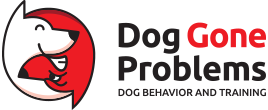Teaching a Couple of Goldens Some New Rules
By: David Codr
Published Date: September 6, 2015
Four-year-old Golden Retriever Ally (left) lives with her seven-year-old Golden room mate Chloe in Valley Village California. Their guardians asked me to help with multiple issues including Ally’s over barking and excitement when people arrive, counter surfing, and intense-excitement at meal time.
When I sat down with their guardian’s to discuss the situation I saw both dogs get right up in their business, showing zero respect for their personal space. This is usually an indicator of a dog that lacks the proper respect for their guardians.
It didn’t take long to see why the dogs did this; every time they did they were stroked, scratched or petted by the guardian who’s space they invaded. Additionally Ally would come over each time she saw that Chloe was getting some attention,
When you have multiple dogs, competition for attention is pretty common. When you pet your dog each time it gets into your personal space, you are essentially training it to repeat that action in the future. Thats why I recommend that my clients make an effort to pet their dogs for a reason. For example, rather than petting your dog because its nearby or budges you for attention, ask it to sit or lay down, then pet it for complying.
I started out by showing the guardian how to claim her personal space when Ally invaded it without an invitation.
To help the dogs increase their self control, I went through a leadership exercise I developed that helps both dog and guardian practice their respective roles.
The exercise involves the guardian placing a high value item on the floor of the room, claiming it as a dog would, then walking away in a measured way. I only had to run through it a few times with Ally before she was laying down to communicate that she wasn’t challenging for the item.
Once the dog understood what I was asking, I coached her guardian through the exercise until she got the same result.
At first the guardian was reacting too slowly and wasn’t keeping her shoulders squared at the dog; these are important parts of the necessary technique to project authority and communicate effectively with the dog. She also started moving away too soon at times. Its important to stop and wait for the dog to stop, sit or lay down before the human moves away when correcting a dog.
But as the guardian practiced, her technique and timing improved. Just like anything else, the proper technique matters. As the dog’s guardians practice this exercise and gradually make it more challenging by asking the dog to wait for longer periods of time, the dog’s ability to stop and restrain itself will become more developed.
Now that we had established some self control and redefined the leader follower dynamic in the home, we were ready to tackle the primary problem; Ally’s charging, jumping up and getting over excited when people knock at the front door.
I had one of the dog’s guardian’s head outside and play the part of a guest so I could show them how to claim the area around the door in a similar way to what we practiced in the leadership exercise. Ally was far more excited so I focused on her and only after I got her to move away from the door did I open it.
We reset the exercise, but this time I had the other guardian answer the door herself.
Because of the work we did before, the guardian’s technique and timing were much improved. She still moved a little too slow or hesitantly at first, but as she continued, she started moving much sharper and got a great response from the dogs.
Really the only blunder the guardian made was turning her front away from the dogs too early. Each time she did so, they would rush in or around to get to the door. It will be important that she keeps her chest pointed at the dog and wait for the dog to stop, sit or lay down before moving away.
Claiming the door this way is one of my favorite exercises as the dogs usually catch on so quickly. Also because it really impacts how the dog perceives itself. When a dog defers and stops short of the door to allow the human to handle the door greeting, it shows the dog see’s itself in a followers role.
Another way to help the dog’s develop more respect for their guardians and self control is to add more structure to meal time. When dogs are in a group, the leader eats first and the other dogs keep a distance. But in this house, the guardians often fed the dogs before they ate and allowed the dogs to be close to the humans as they ate.
I suggested that the guardians place food in the dog’s bowls, then eat themselves, then give the dogs permission to eat one at a time after the humans had eaten.
This feeding exercise revealed a common mistake many dog guardians have, using the word “OK” as their release word. I inadvertently used the word in my conversation with the guardian when narrating how to conduct the exercise and Ally’s exuberant response caused me to chuckle.
I recommended that they use a more distinct release word like “Food,” “eat” or “grub” so that the dog clearly understands when it is being given permission to eat.
By having dominion over food, the dog’s respect for the humans will increase considerably as will their ability to control and restrain themselves. Each time the guardian’s correct or give the dog permission to eat, they become more of a leader to the dogs.
We tested the dog’s newly developed self control at the end of the session by placing the dog treat container on the floor and communicating that the dog’s were to leave it alone. It only took one correction from the guardian to get the dogs to stay back and keep a respectable distance on their own.
When the guardian moved out of sight and the dogs ignored the treat container, I was impressed. But when the dogs went to join their guardian and went out of their way to walk around the container (keeping a respectable distance), I knew we had made real progress in this session.
By the end of the session, Ally was calmer, showing more self control and looking to her guardian for leadership cue and commands, as was Chloe. As the guardians practice these new ways of communicating, correcting and leading their dogs, Chloe and Ally will start deferring to them rather than trying to lead or do it all themselves.
Categorized in: Dog Behavior


